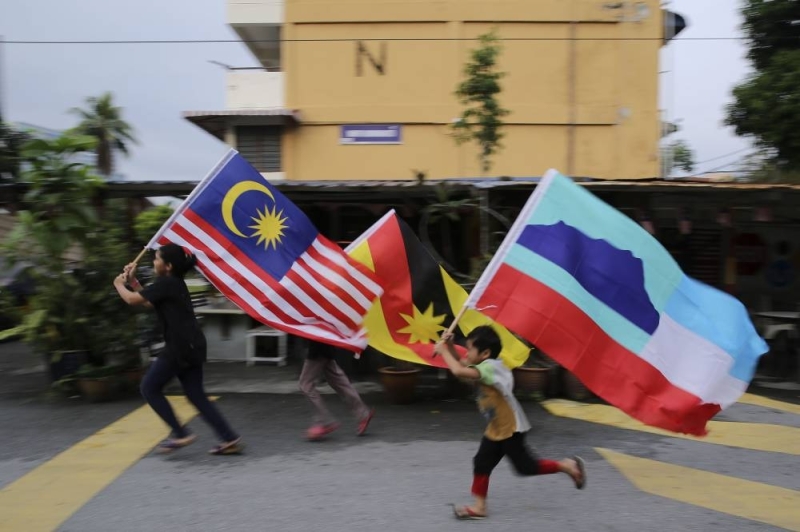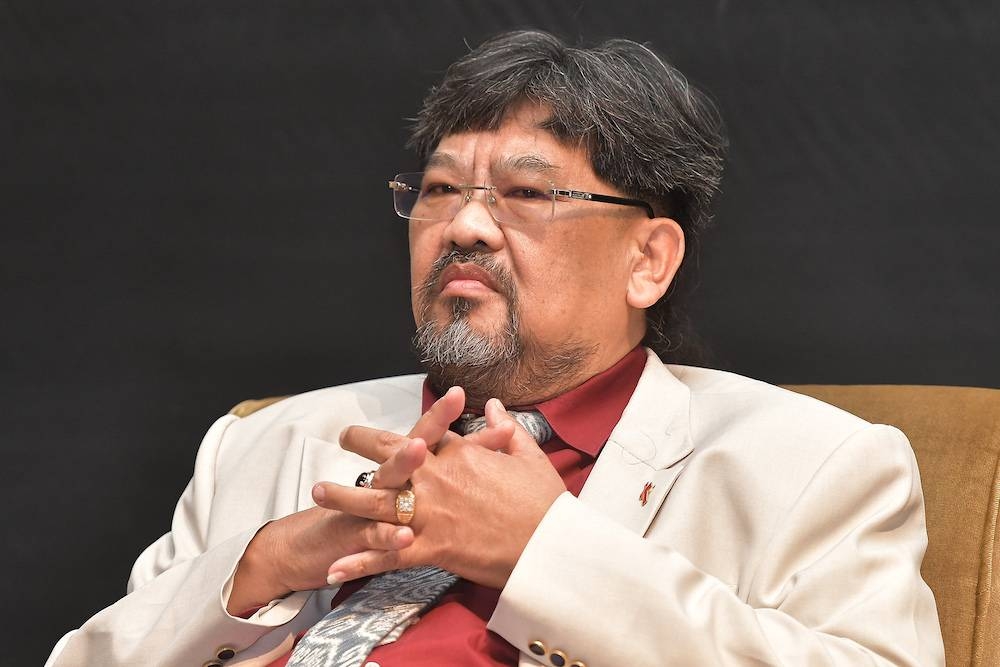
KUALA LUMPUR, Dec 9 — Both Sabah and Sarawak have little to complain about after being given six out of 28 ministerial posts available in Datuk Seri Anwar Ibrahim’s Cabinet and will have to quickly start proving their worth as part of the federal government, political analysts have said.
Arnold Puyok, deputy dean of Universiti Malaysia Sarawak’s faculty of social sciences and humanities, said the Sarawak-based Gabungan Parti Sarawak (GPS) should be happy with the Cabinet line-up as it was given a deputy prime minister post, on top of five ministerial posts.
“I think GPS deserves the five ministerial and DPM posts as they represent the biggest political bloc in East Malaysia. Giving GPS a DPM post with a portfolio is also expected in order to give more ‘weightage’ to the number two Cabinet position. Otherwise, it would be seen as just a ceremonial position to make Sabah and Sarawak,” he told Malay Mail.
While noting that Sabah BN chairman Datuk Seri Bung Moktar Radin had recently indicated unhappiness over the alleged sidelining of Sabah in the Cabinet line-up, Arnold said it was understandable why GRS was given lesser ministerial posts “as they are quite fractious politically”, and also viewed such Cabinet appointments as a way for Anwar to “recognise GRS’ aspiration of becoming an influential local bloc coming from Sabah”.
Anwar only needs the support of 112 MPs to be able to prove he has the confidence required to be prime minister, with more than 140 MPs currently believed to support the unity government he is leading. This includes Pakatan Harapan’s 81 seats (including Anwar), BN (30 MPs including Bung Moktar), ally Muda (one MP), GPS (23 MPs), the Sabah-based Gabungan Rakyat Sabah (six MPs), and Parti Warisan Sabah (three MPs).
Out of the 28 minister posts, GPS was given five — including Plantation and Commodities Minister Datuk Seri Fadillah Yusof, who is also deputy prime minister, while GRS was given one via Sabah Parti Pribumi Bersatu Malaysia’s Datuk Armizan Mohd Ali.
While Bung Moktar had expressed disappointment as none of Sabah BN MPs were appointed to the Cabinet despite securing seven seats, these Sabah BN MPs are part of the larger 30 MPs tally from BN as a whole. BN was given six ministerial posts.
Sabah also has another minister post via PH component party United Progressive Kinabalu Organisation (Upko), which contributed to two of the 81 parliamentary seats won by PH.
Taken as a whole, this means Sabah and Sarawak collectively have seven of the 28 Cabinet posts, or 25 per cent or one-fourth.
Jeniri Amir, adjunct professor of Universiti Malaysia Sarawak, believes the political parties in Sabah and Sarawak that are part of the unity government are happy with the positions they have been given in Cabinet.
“I think definitely they are happy. GPS is definitely happy because of the improvement compared to the previous Cabinet where they only had four. Let alone with one DPM from GPS, there’s no reason for them to be not satisfied with this arrangement. Furthermore, I think the post is quite a senior position in Cabinet,” the National Council of Professors senior fellow said.
“They cannot demand, realising the fact this Cabinet is a downsized Cabinet. What matters is how they contribute to the efficiency, fulfill KPI and pledges set by the PM, so they need to work as a team. There’s no time for honeymoon, they need to be functional, effectively upholding integrity and good governance as pledged by the PM,” he said of politicians from east Malaysia who were given ministerial posts.
“Bear in mind they are not only ministers for Sabah and Sarawak, but ministers for Malaysia, so they need to be seen as ministers that are functional for the whole of Malaysia,” he said.
Given the limitations of a downsized Cabinet with fewer ministerial posts to go around, Jeniri said: “Of course, this is the best deal, nothing to complain, including for Sabah. GRS only six seats — take into account the number of seats, and also based on ratio and a lot of factors that the PM has to consider.”
As for GRS which was not given a deputy prime minister post, Jeniri noted GRS only won six seats: “They are not unhappy, they know the position very well, they understand the ratio they contribute to the government. They cannot compare with GPS, because GPS contributed 23 seats, it’s more than fair. I think the PM is trying to be fair and accommodate all stakeholders, political parties.”
For GPS component party SUPP which was not given any ministerial post, Jeniri said the party is probably hoping to at least get a deputy minister post, and said they would know as political leaders about the need to not be self-serving and noted the context of a downsized Cabinet.
While GPS was given five ministerial posts, its main party Parti Pesaka Bumiputera Bersatu (PBB) — which won 14 seats — occupies three of the posts with Fadillah also being a deputy prime minister, Parti Rakyat Sarawak (PRS) which won five seats and Progressive Democratic Party (PDP) which won two seats were given one Cabinet post each. GPS party Sarawak United Peoples’ Party (SUPP) which won two seats was not given any ministerial role.
For Parti Warisan Sabah for example, Jeniri believes the party would probably be given deputy minister posts or other roles in government-linked companies that would enable them to contribute in other forms, and not necessarily as a minister or deputy prime minister — both positions which were not given to Warisan.
Jeniri said the newly-formed administration will need to get the ball rolling to be seen as a performing government that is efficient, has full integrity and fulfils the citizens’ agenda to avoid being attacked by PN which will seek to act as checks and balance.
“I think this government is going to be tested in how effectively it addresses the cost of living and inflation burdening the rakyat now. Time is not on their side, they have to be seen as effective,” he said.
Jeniri said the unity government has a short time to prove within the first 100 days of government that they are able to address these economic challenges faced by Malaysians, highlighting that there are also many electoral promises made such as in terms of integrity and reforms to institutions.
As for the Malaysia Agreement 1963 which Sabah and Sarawak have long sought full recognition of and for the restoration of eroded rights, Jeniri said this should not be postponed, and there must be a commitment from the federal government to have it fulfilled within a “reasonable timeframe” instead of in five years’ time.
“There must be serious political commitment on PM to tackle this problem once and for all because this is a pain in the neck. This is the only way for the country to move forward. Fulfil all the pledges, return all the rights and fulfil whatever is enshrined in the MA63 and IGC report,” he said, referring to the Malaysia Agreement 1963 and the Inter-Governmental Committee Report 1962 by their acronyms.
“Five years is too long, they have promised, keep on talking about this, how long have we talked about this? Until we iron this once and for all and we cant move as a nation under a federalism system,” he asked.

Datuk Jayum Jawan, professor of political sciences at Universiti Putra Malaysia, said ministers appointed from Sabah and Sarawak have to prove their worth and that the focus should go beyond just the number of ministerial posts given to east Malaysian politicians.
“The number cannot be used any longer as an indicator of anything. It now has to be on quality. Sarawak and Sabah used to have about six representatives each in the federal Cabinet at one time, but that amounted to nothing.
“None of the Sarawak or Sabah ministers left an unforgettable impression while they were in the federal government compared to their predecessor such as Tun Abdul Rahman Yaakub who was an education minister and even has a school somewhere in the Peninsular named after him,” he said, stressing that those appointed such as the GPS leaders must show quality leadership and knowledge.
Asked if the five ministerial posts to GPS and one ministerial post to GRS was sufficient recognition of the number of seats won in GE15, Jayum said it was “plenty” and “enough to give a Sarawak voice in the Cabinet”.
“I would have wanted to see a SUPP minister and it would have been fair to all components of GPS,” the Academy of Sciences Malaysia fellow said.
Asked if he felt Sabah should have been given more minister posts, Jayum noted that political parties there contributed fewer parliamentary seats to the unity government, as compared to Sarawak.
“They don’t deliver as much number as Sarawak, so they may get deputy ministers to compensate, as would many parties that are not given more seats that they want.”
Apart from GRS which received one ministerial post, the ministerial post given to Sabah-based Upko within PH is also “more than enough”, he said.
Jayum agreed both Sabah and Sarawak are already getting the best deal possible amid a downsized Cabinet and with Anwar having to allocate among the many parties in the unity government.
“Yes, basically not much to complain about,” he said, adding that it is now time to see what the ministers appointed from Sabah and Sarawak can deliver for entire Malaysia. - malaymail



No comments:
Post a Comment
Note: Only a member of this blog may post a comment.